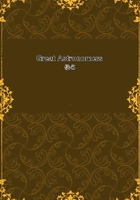
第56章 WILLIAM HERSCHEL.(2)
From his earliest youth Herschel had been endowed with that invaluable characteristic, an eager curiosity for knowledge. He was naturally desirous of perfecting himself in the theory of music, and thus he was led to study mathematics. When he had once tasted the charms of mathematics, he saw vast regions of knowledge unfolded before him, and in this way he was induced to direct his attention to astronomy. More and more this pursuit seems to have engrossed his attention, until at last it had become an absorbing passion. Herschel was, however, still obliged, by the exigency of procuring a livelihood, to give up the best part of his time to his profession as a musician; but his heart was eagerly fixed on another science, and every spare moment was steadily devoted to astronomy. For many years, however, he continued to labour at his original calling, nor was it until he had attained middle age and become the most celebrated astronomer of the time, that he was enabled to concentrate his attention exclusively on his favourite pursuit.
It was with quite a small telescope which had been lent him by a friend that Herschel commenced his career as an observer. However, he speedily discovered that to see all he wanted to see, a telescope of far greater power would be necessary, and he determined to obtain this more powerful instrument by actually making it with his own hands. At first it may seem scarcely likely that one whose occupation had previously been the study and practice of music should meet with success in so technical an operation as the construction of a telescope. It may, however, be mentioned that the kind of instrument which Herschel designed to construct was formed on a very different principle from the refracting telescopes with which we are ordinarily familiar. His telescope was to be what is termed a reflector. In this type of instrument the optical power is obtained by the use of a mirror at the bottom of the tube, and the astronomer looks down through the tube TOWARDS HIS MIRROR and views the reflection of the stars with its aid. Its efficiency as a telescope depends entirely on the accuracy with which the requisite form has been imparted to the mirror. The surface has to be hollowed out a little, and this has to be done so truly that the slightest deviation from good workmanship in this essential particular would be fatal to efficient performance of the telescope.
[PLATE: WILLIAM HERSCHEL.]
The mirror that Herschel employed was composed of a mixture of two parts of copper to one of tin; the alloy thus obtained is an intensely hard material, very difficult to cast into the proper shape, and very difficult to work afterwards. It possesses, however, when polished, a lustre hardly inferior to that of silver itself.
Herschel has recorded hardly any particulars as to the actual process by which he cast and figured his reflectors. We are however, told that in later years, after his telescopes had become famous, he made a considerable sum of money by the manufacture and sale of great instruments. Perhaps this may be the reason why he never found it expedient to publish any very explicit details as to the means by which his remarkable successes were obtained.
[PLATE: CAROLINE HERSCHEL.]
Since Herschel's time many other astronomers, notably the late Earl of Rosse, have experimented in the same direction, and succeeded in making telescopes certainly far greater, and probably more perfect, than any which Herschel appears to have constructed. The details of these later methods are now well known, and have been extensively practised. Many amateurs have thus been able to make telescopes by following the instructions so clearly laid down by Lord Rosse and the other authorities. Indeed, it would seem that any one who has a little mechanical skill and a good deal of patience ought now to experience no great difficulty in constructing a telescope quite as powerful as that which first brought Herschel into fame. I should, however, mention that in these modern days the material generally used for the mirror is of a more tractable description than the metallic substance which was employed by Herschel and by Lord Rosse.
A reflecting telescope of the present day would not be fitted with a mirror composed of that alloy known as speculum metal, whose composition I have already mentioned. It has been found more advantageous to employ a glass mirror carefully figured and polished, just as a metallic mirror would have been, and then to impart to the polished glass surface a fine coating of silver laid down by a chemical process. The silver-on-glass mirrors are so much lighter and so much easier to construct that the more old-fashioned metallic mirrors may be said to have fallen into almost total disuse. In one respect however, the metallic mirror may still claim the advantage that, with reasonable care, its surface will last bright and untarnished for a much longer period than can the silver film on the glass. However, the operation of re-silvering a glass has now become such a simple one that the advantage this indicates is not relatively so great as might at first be supposed.
[PLATE: STREET VIEW, HERSCHEL HOUSE, SLOUGH.]